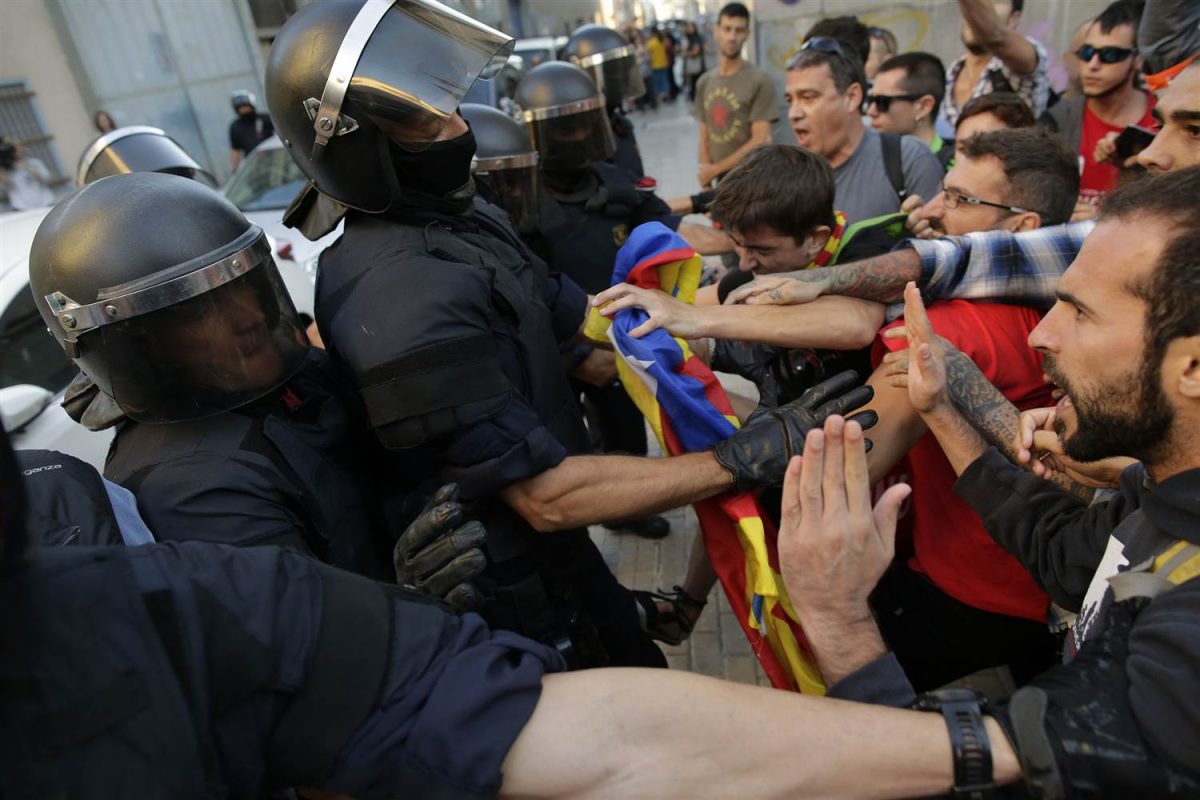The Catalans are Battlin’
Political Brawls over Independence Referendum in Catalonia
Pro-independence Catalans and police confront each other
October 2, 2017
On 10/1, Catalonia held a referendum over its independence amidst chaotic conditions at polling stations and government buildings. Ever since the voters of the United Kingdom expressed in the Brexit referendum last year their desire to leave the European Union, ripples have spread outward from the British Isles, prompting discussions of independence for London and California, and intensifying existing secessionist sentiments in northern Italy and northern Syria. Spain has become the new hotspot for which the maps may have to be redrawn.
Before understanding what this means for Catalonia, we need to know, where is it, and why did it just catch on fire?
Catalonia is an autonomous community in northeastern Spain. The people of Catalonia, the Catalans, express their own Catalan culture and language. This nation last held independence nearly 80 years ago during a civil war, but was taken back into Spain under a state that mandated the public use of Spanish.
Since 2009, belief in Catalonia’s ability to make it in the world has steadily grown with several official and unofficial referenda to gauge the Catalan people’s opinion. When the United Kingdom asserted its displeasure of being in the European Union, it was heard ‘round the world, and the secessionist students, pamphleteers, and Members of Parliament of Catalonia asked, “If they can do it, why can’t we?”
Yesterday, the government decided to hold an official referendum, bringing the Catalans into the streets and into the government buildings. The Supreme Court of Spain declared that such a move by an autonomous regional government is unconstitutional, and many police officers in Catalonia asserted this decision. Reports are coming out that several hundred civilians and civil servants have been injured in brawls at buildings quickly furnished as polling stations by the autonomous government. Ballot boxes were scattered amidst exchanges of fists and of rubber bullets in the clashes over what has been declared illegal by the Spanish government.
To put this in perspective, imagine if California with its global cities held a referendum for secession from the Union, threatening to take one eighth of the American population and one ninth of the economy with it. This constitutional crisis is being faced in Spain to a larger degree, as Catalonia holds one sixth of the Spanish population and economy, along with its capital Barcelona, a city of global importance on par with Rome or Houston.
Catalan President Carles Puigdemont has declared that “Catalonia has won the right to become an independent state” and promised to voters that he would declare independence within 48 hours of a victory for the “yes” vote, which has won so far. The mandate of the results, however, is not invulnerable to scrutiny by the Spanish government; while the vote for independence boasts a landslide of about 92% of the vote, only 42% of registered voters in Catalonia braved the public buildings which were more arena than polling station.



Donald Taylor • Oct 4, 2017 at 7:33 am
Nice article, thank you David.